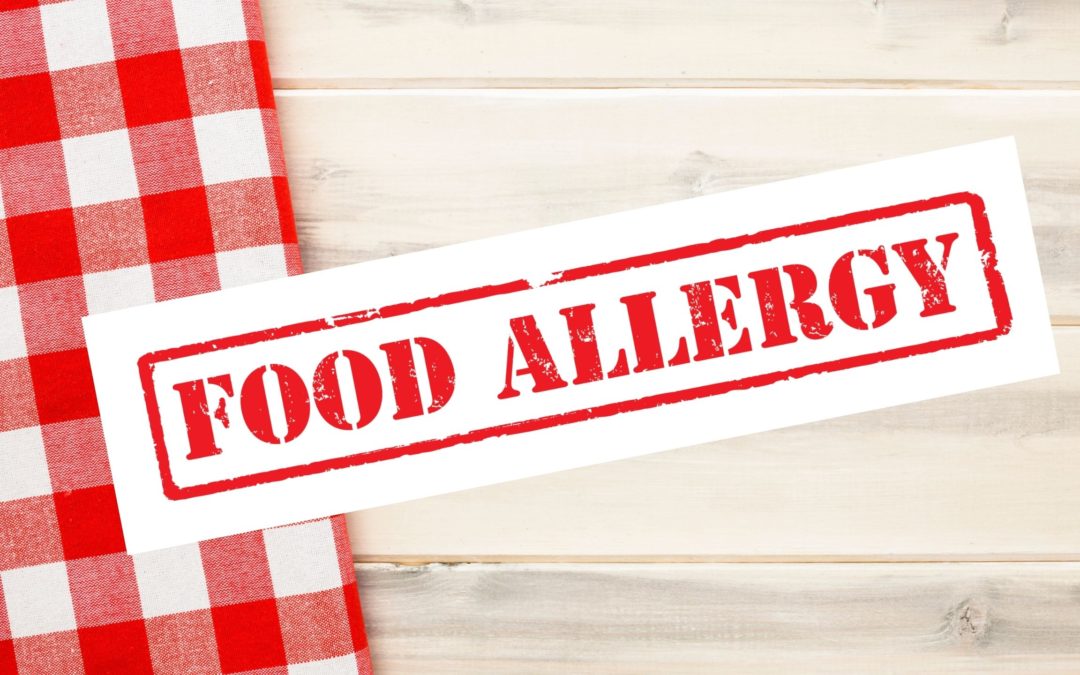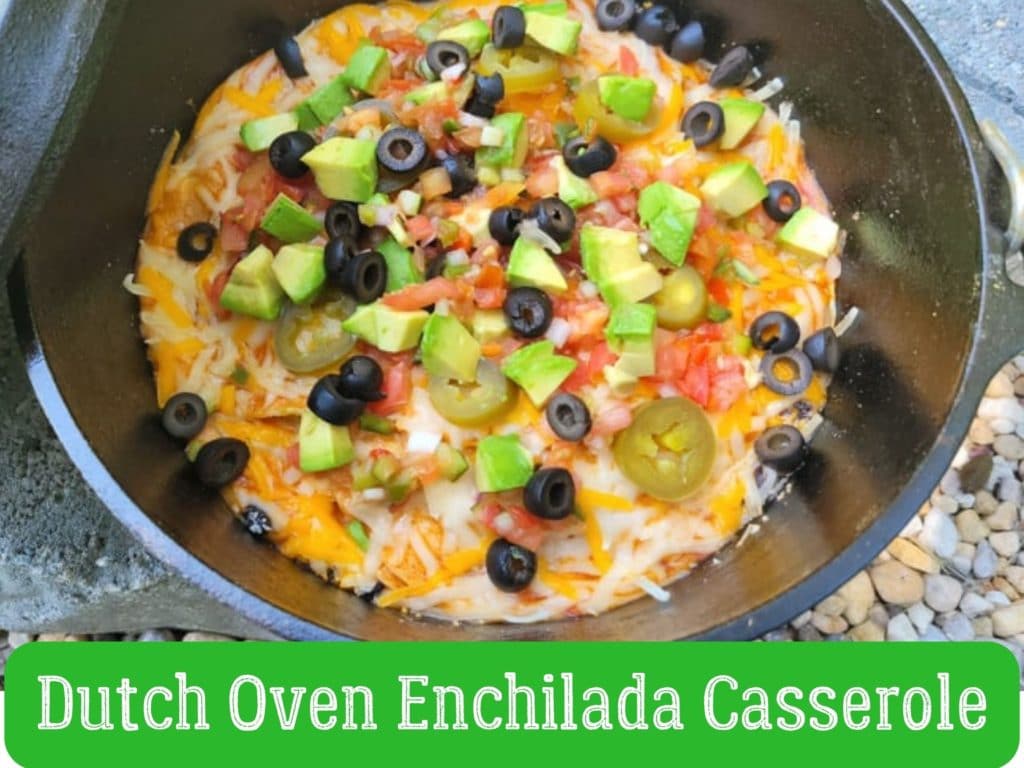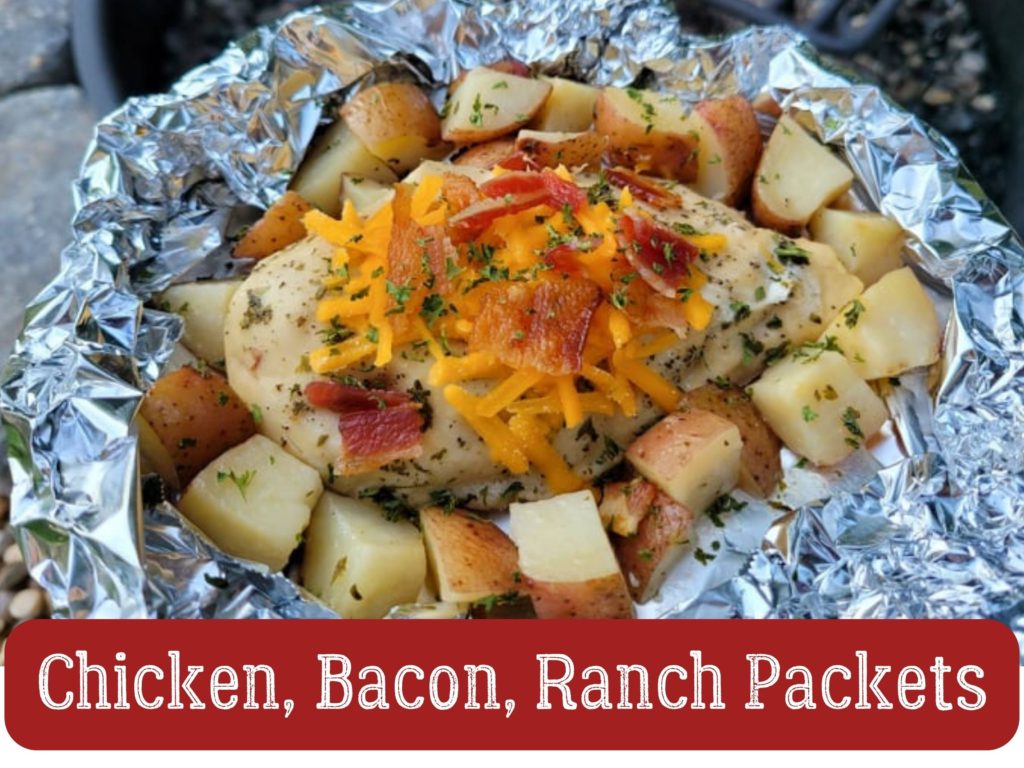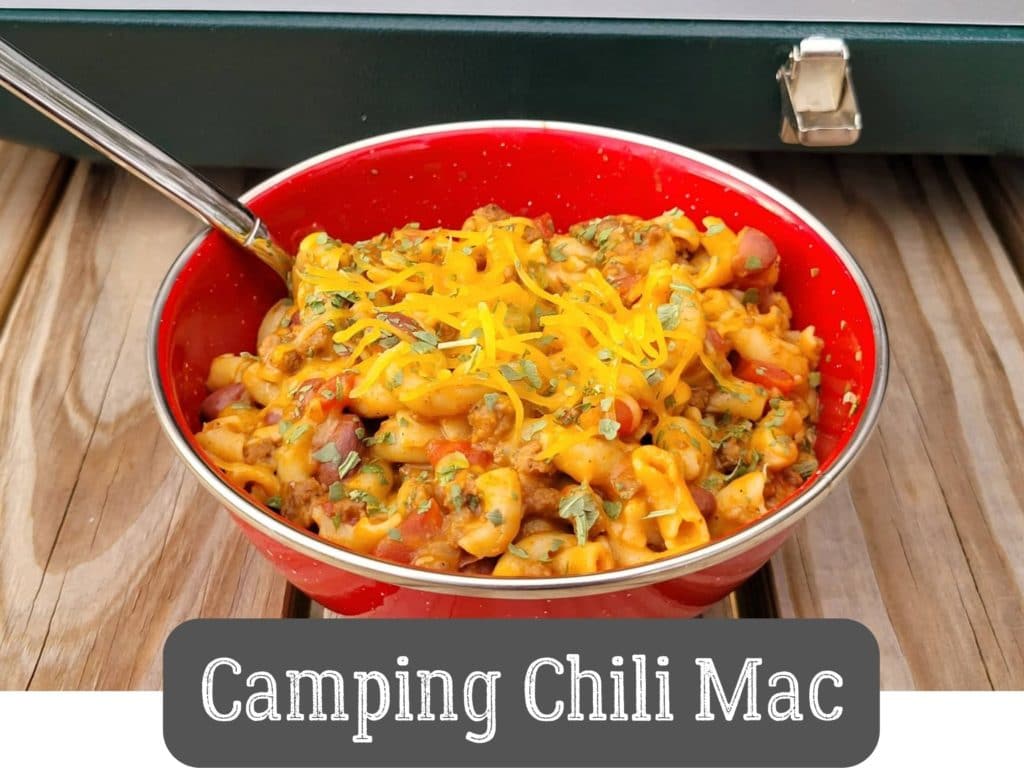When I was diagnosed with food allergies, it took some time to adapt to my new way of eating. But once I had established which foods were safe for me to eat and which ones were off-limits, I felt much more confident. Then, I was met with a new challenge: How do I prepare for camping with food allergies?
As someone who has multiple food allergies, I know the feelings of anxiety and concern that arise when I won’t have access to my usual kitchen supplies and allergy-friendly ingredients for preparing meals. Despite feeling intimidated by the new task of planning allergy-friendly camping meals and snacks, I didn’t want to let my fear stop me from enjoying one of my favorite outdoor hobbies. Fortunately, I realized that preparing and enjoying delicious food in the great outdoors while avoiding allergens is actually pretty easy. It just takes some planning and practice.
Before we jump into the rest of the article, it’s important to note that food allergy severity and symptoms can vary greatly from person to person. For example, a child may have a peanut allergy that causes a life-threatening anaphylactic reaction if they ingest even a trace amount of peanut residue. Another person might have a gluten or dairy allergy that causes significant intestinal distress, joint pain, or itchy rashes. Others may only have mild food intolerances, but they still avoid foods that make them feel unwell. Regardless of the severity of the allergy or intolerance, it’s always important to respect a person’s decision to avoid certain foods.
How To Go Camping With Food Allergies
In this guide, I’ll show you how to prepare for your next allergy-friendly camping trip!
These five steps will make camping with food allergies safe and fun for the whole family:
- Inform others of your food allergies, what foods you will need to avoid, and what an allergic reaction looks like for you.
- Bring emergency medications and show others how to help you administer them.
- Have a written emergency plan in place.
- Avoid cross-contamination of cookware, dishes, and utensils at the campsite.
- Plan meals and snacks ahead of time and prepare ingredients at home.
Now, let’s take a look at each of these steps in more detail.
Inform Others About Your Food Allergies

Your family and close friends might already be well aware of this information. But if you’re camping with a group where others may not be familiar with your food allergies, this step is very important. This is especially true if your child with food allergies is going on a camping trip with another family.
Start by letting others in your group know what foods you are allergic to and what you will need to avoid. Be specific, as many people without allergies aren’t aware of which foods contain certain ingredients. Here are some examples:
- “I’m allergic to gluten, which is in foods made with wheat, barley, and rye. I can’t eat regular bread or hotdog buns, but I brought my own gluten-free bread.”
- My daughter is allergic to milk and dairy products. She can’t have ice cream, but I am sending some fruit popsicles for her dessert.”
You will also need to educate your camping group about what an allergic reaction looks like for you. Do you have trouble breathing? Do you break out in itchy hives? Tell them what symptoms to watch for and how to help you in an emergency situation.
Bring Emergency Medications With You

Bring multiple doses of emergency medications, such as an Epi-pen or inhaler, with you to the campsite. Make sure to store your medication in a cool, dry location. Avoid leaving it in a hot car or in direct sunlight, as it may not work correctly.
Always tell others in your camping group where your medication is kept. You should also teach at least one or two other people how to help you administer your medication in case you aren’t able to do it yourself.
Most Epi-pens now come with voice-guided electronic training devices. They are super helpful and easy to practice with. Bring one with you to show friends or family how to properly use the Epi-pen if they’re not familiar with it. Knowing how to use it ahead of time can save a lot of time and anxiety in the event of a real emergency situation.
Have An Emergency Plan In Place

It’s important to have an emergency plan in place before your camping trip. I always suggest writing out your emergency plan, step-by-step. This can literally save a life in the event of an actual emergency when minds aren’t thinking clearly.
In your written emergency plan, include:
- Names and phone numbers for family members who may need to be alerted
- A list of emergency medications, dosages, and how to administer them (Epi-pen, inhaler, Benadryl, etc.)
- The name and location of the nearest hospital or emergency medical facility
- Location of an emergency phone at the campground
Prior to your trip, it’s also a smart idea to map out and print directions from the campground to the nearest hospital. We’ve all been in situations where the GPS didn’t give the correct directions. You definitely wouldn’t want this to happen in an emergency.
It’s also wise to check the cell phone coverage in the campground area prior to your trip. If it’s too far to drive to the campground and check out the cell service before your trip, call the office and ask a ranger or manager what the reception is like. If you can’t get a good answer, you can always google the campground reviews and filter the results to see if any guests have mentioned cell service. To be on the safe side, it’s best to note the location of a campground phone in case you need to call 911.
Plan And Prepare Meals Ahead Of Time

The best way to avoid having any food allergy reactions while camping is to plan your meals and snacks ahead of time. Write down what you plan to have for each meal. Then, make a list of the ingredients you’ll need. If possible, only plan meals and snacks that will be allergy-friendly for everyone. However, this may not always be feasible, especially when camping with a larger or non-family group.
A day or two before your trip, pre-cook as many ingredients as possible. This will not only save time when preparing meals, but will help you avoid accidental cross-contamination with preparation surfaces and utensils while camping.
For example, I like to pre-cook ground meats, certain vegetables, and sauces. I also chop or dice veggies such as carrots, onions, bell peppers, and broccoli. Prepped ingredients can stay in a cold cooler for 2-3 days before using them. Avoid pre-cutting potatoes, however, as they turn brown.
One of my favorite ways to pre-make camping meals is with foil packets dinners. Assemble, fold, and label the foil packets at home. They can be stored in the fridge or cooler for up to three days before cooking. When you get to the campsite, simply cook the packets over the grill or campfire and enjoy easy clean-up. Check out my helpful article, How To Make Camping Foil Packet Meals, for step-by-step instructions and recipe ideas.
Avoid Cross-Contamination

When cooking at the campsite, it’s important to avoid accidental cross-contamination of food and dishes. Basically, that means taking extra care to prevent your food from touching a surface that has been in contact with something you’re allergic to.
For instance, cross-contamination could occur if you use the same cutting board, knife, or pan that was used to prepare food containing an allergen like gluten, dairy, eggs, or nuts. It can also occur if you use dishes or utensils that haven’t been properly washed.
Here are several ways to prevent cross-contamination while camping:
- Use a picnic table cover. Picnic table covers or tablecloths are great regardless of allergy status. Campground picnic tables are exposed to a variety of dirty things (think animals, luggage, fishing gear, RV hoses, shoes, etc.). Having a clean barrier between the table and your food is always a good idea. As an added bonus, they protect against splinters!
- Use color-coded dishes and cups for each person. It’s easy to find camping dish sets in a variety of colors. Make sure each person in the group only uses their chosen color for the entire trip.
- Wash cookware and dishes thoroughly. Check out my article, How To Wash Dishes While Camping, to see an easy way to wash and sanitize dishes at the campsite.
- Use disposable dishes and utensils. While I generally try to avoid single-use products to cut down on waste, using disposable dishes to avoid an allergic situation is different. Being able to toss used plates, cups, and utensils helps eliminate the chances of cross-contamination.
- Avoid putting food directly on a public barbecue grill. You don’t know what has been previously cooked on the grill and allergen residue could remain on the surface despite cleaning it. Safer, alternative cooking methods include making foil packets over the campfire or on the grill, cooking with a camp stove, or bringing your own portable grill. If these options aren’t available and you need to use the campground grill, tear off a piece of heavy-duty aluminum foil, poke small vent holes in it with a fork, and lay it over the grill grates. This will provide a clean surface to cook on and will keep your food from directly touching the grill.
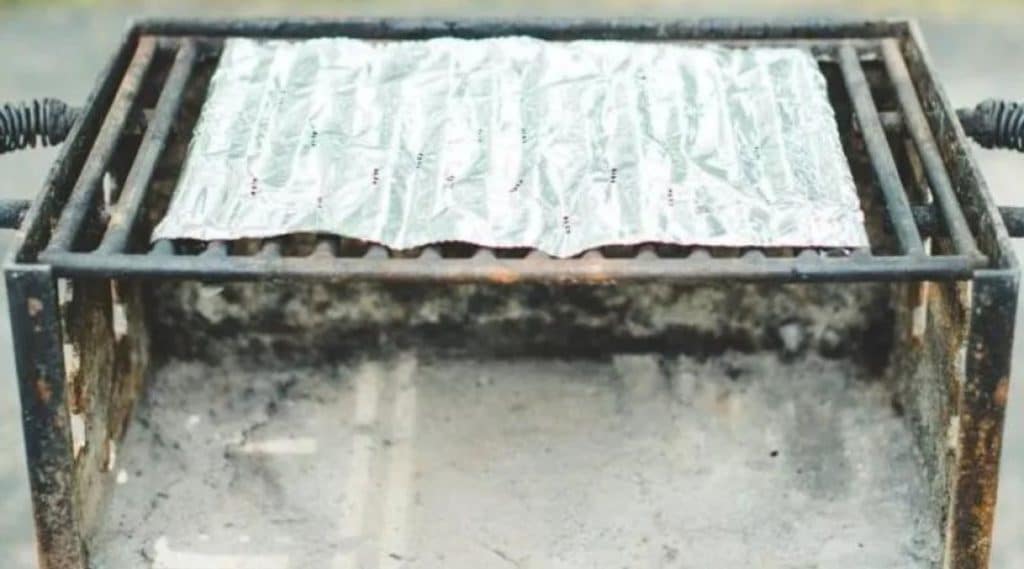
Allergy-Friendly Camping Recipes
When food allergies became a part of my life, I made it my mission to come up with new recipes and modify traditional favorites to make camping with food allergies more fun, safe, and delicious for everyone. In fact, that was what motivated me to start the Campfires and Cast Iron blog.
All of the recipes featured on the blog include modifications to make them gluten and dairy-free while still tasting amazing. Even my husband, who doesn’t have food allergies, loves the allergy-friendly versions. Sometimes, he doesn’t even know they’re gluten and dairy-free!
In addition to being perfect for camping, my recipes are also easy to make indoors on a stove or in the oven. I always include these instructions at the end of each recipe card.
Here are a few of our favorites:
Pre-Packaged Allergy-Friendly Camping Snacks
While camp cooking is fun and delicious, sometimes you need quick, grab-and-go snacks. Here are some of my favorite allergy-friendly snacks for camping and hiking.
- Enjoy Life Soft-Baked Breakfast Bars (free from 14 top allergens)
- YumEarth Organic Fruit Snacks (GF, Vegan, nut-free)
- MADEGOOD Organic Strawberry Granola Minis (GF, Vegan, nut-free)
- Kate’s Real Food Organic Energy Bars (Gluten and soy-free)
- Popcorners Chips (gluten-free)
- Nature’s Bakery Bars (GF, Vegan)
- Brothers All-Natural Fruit Crisps (GF, Vegan, nut-free, soy-free)
- Pamela’s Gluten-Free Graham Crackers (gluten-free; great for s’mores!)
- LesserEvil Paleo Puffs (GF, grain-free, Vegan)
- Enjoy Life Trail Mix (GF, Vegan, nut-free, soy-free)
Conclusion
I hope this article has helped you feel more confident in planning and preparing for an allergy-friendly camping trip. There’s so much to enjoy in the great outdoors. Don’t let food allergies hold you back from amazing camping adventures!
This post may contain affiliate links. This means if you click on a link and make a purchase, I will receive a small commission, at no cost to you, that makes it possible for me to keep the Campfires and Cast Iron site up and running. Please see our disclosure policy for details.

